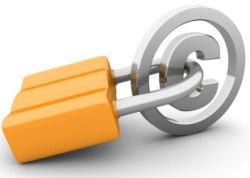Financial Services, Legislation, Markets and Companies, Taxation
International Internet Magazine. Baltic States news & analytics
Monday, 28.07.2025, 03:59
Lithuanian Seimas votes for big increase in private copying tax
 Print version
Print version |
|---|
The president approved the new regime on the condition that the government will immediately conduct monitoring of the existing law and ensure a clear and simple tax return system. The relevant provisions will come into force on March 1 2012, writes LETA/ELTA.
In 2003 Lithuania introduced a private copying tax for blank media and reprographic reproduction services. Since then the Ministry of Culture, which is responsible for copyright protection policy, has made several unsuccessful attempts to modify the system in order to incorporate new technological developments and increase revenue.
The amounts raised in Lithuania have been low in comparison with those in other EU countries. From 2006 to 2008, on average, the private copying tax raised around EUR 350,600 and the reprographic reproduction tax raised around EUR 18,000. The proponents of the new law considered that this did not represent fair compensation under Article 5(2)(a)(b) of the EU Information Society Directive (2001/29/EC) and contradicted the three-step test in Article 2(5).
The ministry's previous proposals were generally blocked at government level, as was the case with the Bill on Copyright and Related Rights (957-01), which was drafted in 2009 but was never debated in Parliament. However, on this occasion the creative industries found parliamentary support. A near-identical proposal was submitted on April 30 2010 and was finally adopted on December 21 2011.
The new law imposes the tax on blank analogue and digital media, including all types of CD, minidisc, Blu-Ray disc, memory card, universal serial bus chip, solid-state drive disk and hard drive disk. However, it also covers personal reproduction devices with memory and recording functions (e.g., CD and DVD-burning devices, home theatre equipment, MP3 players, hard disks, personal computers and mobile phones) and reprographic reproduction devices (e.g., photocopying equipment). As before, the tax applies to photocopying services provided in Lithuania.
The tax is payable by any party that either sells the aforementioned equipment or media or provides photocopying services to natural persons in Lithuania.
Presumably in order to reflect the case law of the European Court of Justice, the new law introduces a tax return mechanism. In a change to the previous system, this is available to all persons that acquire blank media or equipment for professional purposes (i.e., any purpose that is clearly unconnected with private purposes). As previously, the tax is also refundable to people with disabilities and when blank media and equipment are exported from the Lithuanian territory.
One-quarter of the revenue from the tax will be allocated to programmes for creative activities and the protection of copyright and related rights.
The annexes to the law set out the relevant tariffs and a list of blank media and equipment to which the tax applies. The varying tariffs mainly reflect the memory capacity of blank media and equipment.
Once the law enters into force, it is expected to raise approximately EUR 800,000 annually. However, it remains to be seen whether the new regime will meet the expectations of the law's supporters and the creative industries.








 «The Baltic Course» Is Sold and Stays in Business!
«The Baltic Course» Is Sold and Stays in Business!

